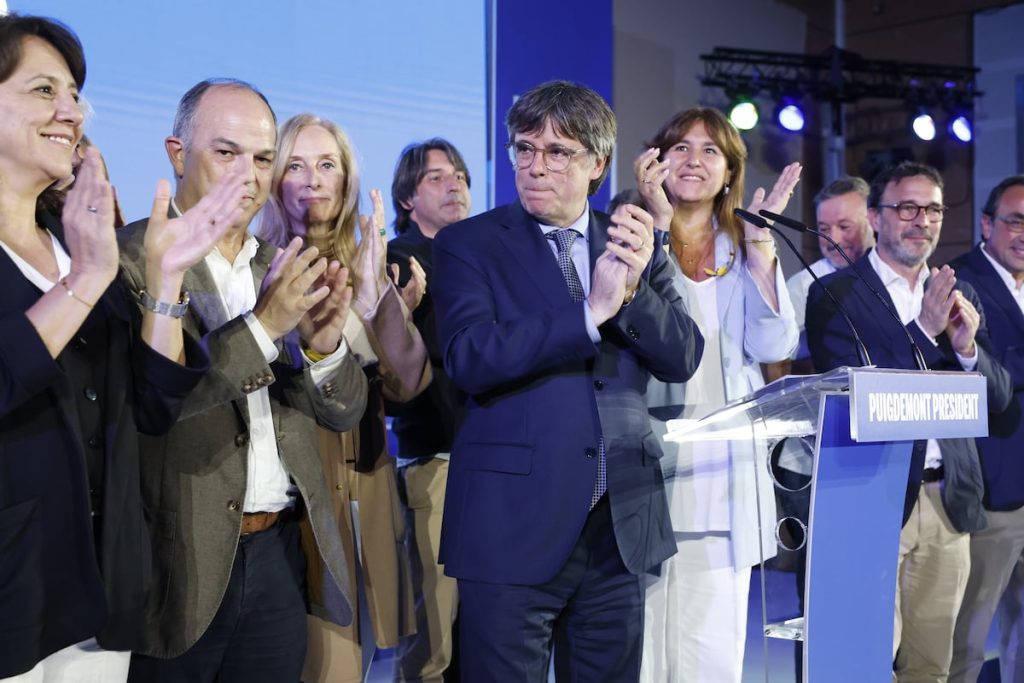Carles Puigdemont is determined to form a government that will allow him to become the next president of the Generalitat, after Junts emerged as the second-largest party in the Parliament with 35 seats, three more than in the 2021 Catalan elections. Puigdemont has rejected the idea of a tripartite government, calling it a bad option for Catalonia and criticizing Esquerra Republicana as being incapable of good governance. He has called for dialogue between the independence forces to rebuild bridges and emphasized the importance of having a shared strategy.
Throughout the electoral campaign, Junts per Catalunya focused on reinstating Puigdemont as the “legitimate president” and rallying support across the independence spectrum. Puigdemont had initially planned on running in the European elections but was convinced by party members to lead the party in the regional elections. Despite initial expectations of a poor showing, Junts mobilized thousands of supporters and Puigdemont confidently predicted a victory. If Puigdemont does not become president of the Generalitat, his return to Spain may signal a premature retirement, as he has expressed no desire to lead the opposition in the Parliament.
Puigdemont’s role in Spain’s governance could have significant implications, as Junts plays a crucial role in forming majorities in the Congress of Deputies. Despite his claims that he will not engage in politics from behind the scenes if he does not become president, Puigdemont has proven himself adept at surprising twists. The possibility of a repeat election in Catalonia is seen as unfavorable, and Puigdemont’s future actions could influence the political landscape in Spain.
The outcome of the Catalan elections also has broader implications for Spain’s governance and the dynamics between the different parties. Salvador Illa of the PSC celebrated his party’s victory, while other candidates and parties assessed their results and potential next steps. The CUP, Ciudadanos, and other parties also evaluated their performance in the elections. The focus now shifts to potential coalitions and negotiations to form a government in Catalonia, with the involvement of Junts per Catalunya and other parties being crucial in shaping the future direction.
The aftermath of the elections will determine the path forward for Catalonia and its relationship with Spain. Puigdemont’s ambitions to lead the Generalitat and his influence on the broader political landscape, both in Catalonia and in Spain, will be closely watched. As the parties engage in post-election discussions and negotiations, the formation of a stable and effective government will be essential for addressing the challenges facing Catalonia and charting a course for the region’s future. The coming days and weeks will be critical in determining the political direction and leadership in Catalonia.


